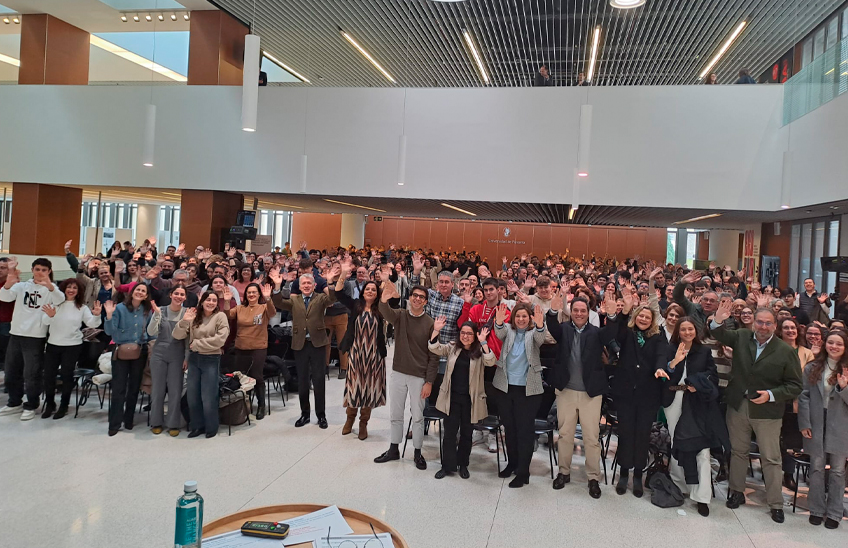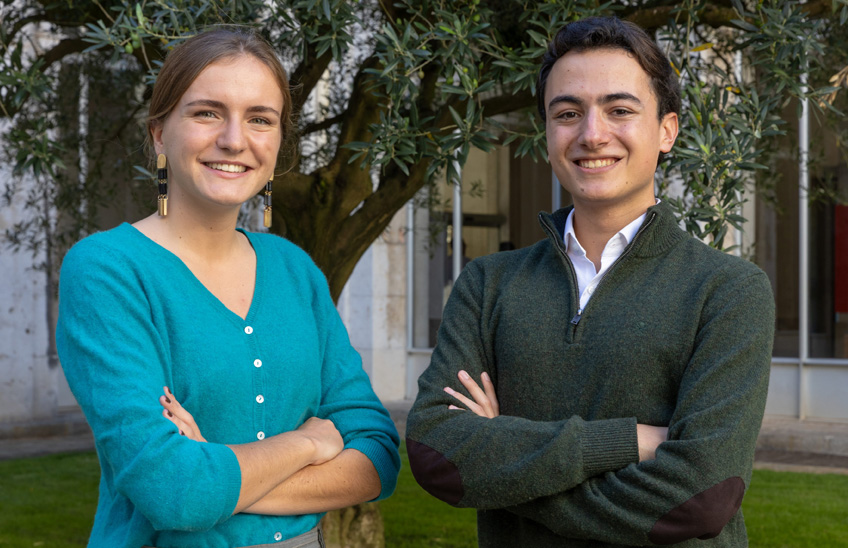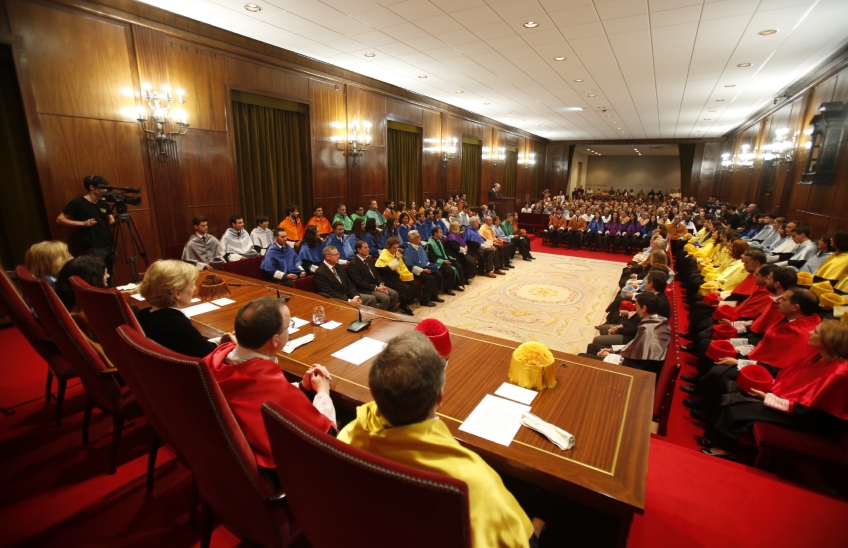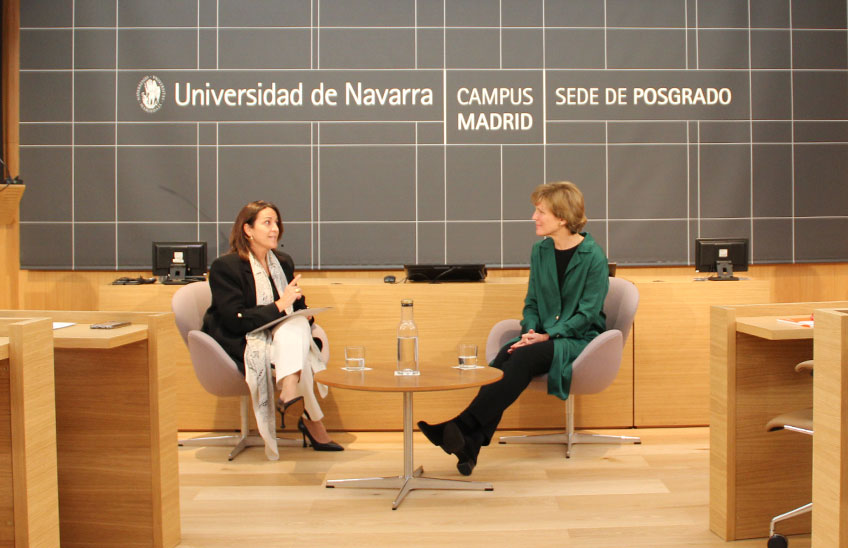Enrique García-Máiquez assures that Chesterton detected that the heresy of the future would be a moral heresy.
The poet and political analyst participated in the University of Navarra in an Academic workshop on the occasion of the feast of St. Thomas Aquinas.

PhotoManuelCastells/
03 | 02 | 2023
"Chesterton prophesied that the heresy of the future would be a moral heresy". This was stated at the University of Navarra by the poet and political analyst Enrique García-Máiquez, on the occasion of his participation in an academic workshop organized by the Schools of Theology and Ecclesiastics of Philosophy entitled 'Two giants: Chesterton and St. Thomas Aquinas'.
For García-Máiquez, "Chesterton would feel rejection towards abortion and towards the social acceptance of abortion and he would be in all the debates. This is a moment for intellectual dialogue".
The thesis of his lecture focused on arguing why Chesterton's biography of St. Thomas received excellent reviews and on whether the author could really have written it with the same quality of a different person. In this regard he explained that the result so brilliant was due to an intimate coincidence of the essential idea of both of them that "in the fact of being beats the imprint of God".
In addition, he recalled ten characteristics that St. Thomas and Chesterton have in common, such as humility, passion for truth, capacity for discussion (without imposing doctrine, but reconciling it), both loved reality, both were poets, their passion for joy, shared the same faith, the value of the just mean, interest in the common man and their physical resemblance.
Before a conference room with more than 300 students, who were celebrating the day of their patron saint, he wanted to recall that the School of Theology "is the skeleton of a university, the one that holds it upright".
The workshop also counted with the participation of Professor Juan Luis Lorda, author of the new translation of Ortodoxia ( Rialp, 2022), one of Chesterton's most relevant works, written in 1908 when he had not yet converted to Catholicism and where "his intellectual evolution" is concentrated. For Lorda, Ortodoxia, like all great books, "deserves much meditation".
In his exhibition he went through the author's biography and affirmed that "what brought Chesterton closer to the faith was to see how Christianity was attacked in an absurd way from different fronts". He thinks that the good must be passionately loved and the bad must be radically rejected.
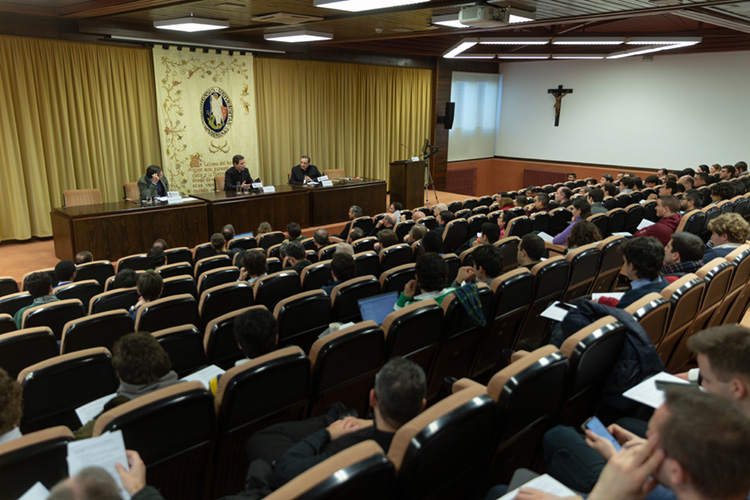
"Chesterton, a wizard of dialogue."
Regarding Chesterton's capacity for dialogue, Professor Lorda pointed out that "his great advantage" was that he always surprised and connected very well with people: "Now there is a kind of stupidity that prevents dialogue, intellectual life lives in the Civil War, where dialogue consists of destroying the opponent. There is very little intellectual style and in that Chesterton was a magician". In this sense, García-Máiquez added that "to be cheerful in the discussion you have to know how to enjoy the mandoble, and Chesterton did that very well".
In addition, during the session, Professor Lorda noted the different facets for which the English author stood out "being careful not to reduce him to any of them: he was an insightful columnist, a publisher who went from charging 4 pence to publishing great books and being in the debates of the time, he was a great literary critic, a good essayist, and a great novelist and poet".

